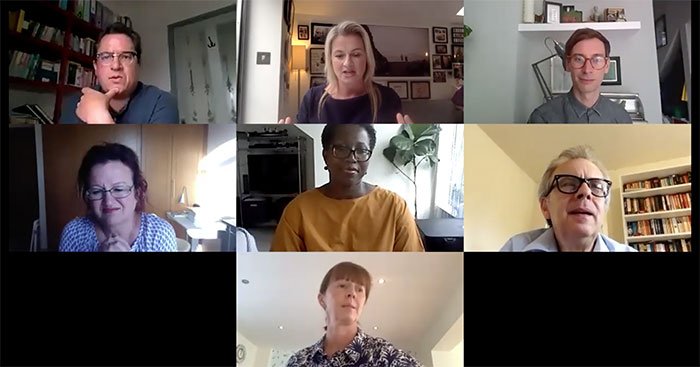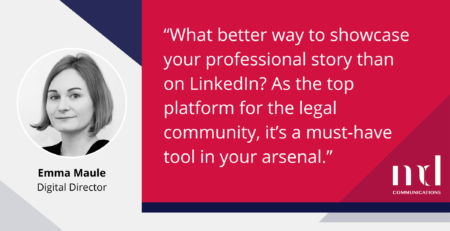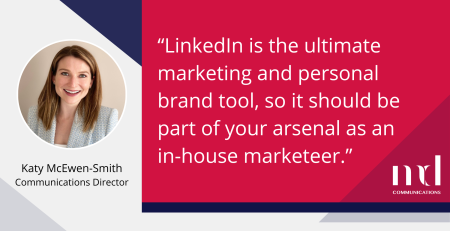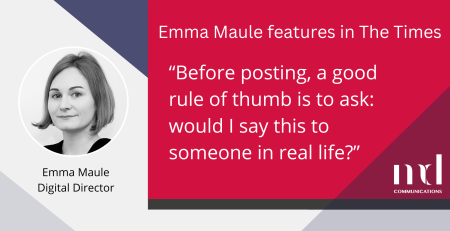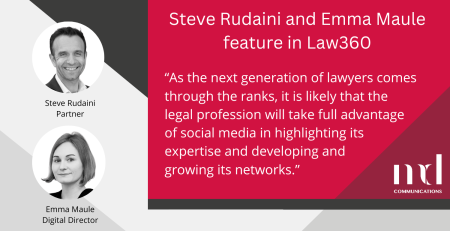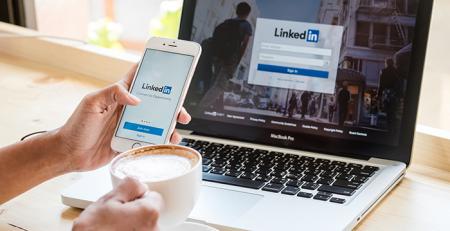Yesterday we brought together an illustrious panel on the topic of reputation and social media. Representing the journalist viewpoint were two leading journalists – Associate Editor of the Independent Sean O’Grady and the Law Society Gazette’s Commissioning and Features Editor Eduardo Reyes with four top lawyers and QCs – Jo Edwards, Head of Family Law at Forsters, Sharon Blackman, Managing Director & GC at Citi, Fiona Robertson, Senior Counsel and Head of Media at Al Tamimi & Company, and Kevin Poulter, Employment Partners at Freeths – to discuss how social media can make or break your reputation during CV-19.
Experiences and advice
The webinar opened with a look at the panelists’ own use of social media and what advice they could give the audience. Jo said that as she progressed through her career, starting out using Twitter as a way of raising her profile, the focus changed, with a switch to promoting her team’s successes when she moved to Forsters.
Eduardo agreed that reasons for being on social media evolve, with his being to spot news, promote features he’d written, and form relationships. He noted that once you’ve decided why you’re using social media, you need authenticity, and it’s best if you can be helpful, timely, supportive, open to conversations, and also be willing to retweet, not just broadcast your own content.
Fiona noted that finding your voice can take time, and that it has to be for the client – rather than trying to impress other lawyers. She also posts about non-legal subjects, and often finds these get more traction than posts about the law.
The Independent’s Sean prefers Twitter, which he uses not to build his own brand but to amplify and echo what his newspaper does. He cautions against putting out content that’s illegal or abusive and warns that it’s necessary to watch the reputation of your employer’s brand as well as your own.
While Sharon uses the platforms as a way to stay in touch, she noted that Twitter and Instagram have been really useful for getting the message out about the pro bono activity she’s involved in.
Kevin says that Twitter has infiltrated more of his work life than Facebook, which he uses as a personal platform, and that it is great for sector specific news, with a community of employment lawyers who share knowledge and information.
Social media and training (or lack thereof)
The discussion turned to how employers now expect their staff to engage with social media a lot more, but often do not provide training. If we are asked to use social media as a BD tool, how we can protect ourselves while showing vulnerability? Polls conducted during the webinar revealed that 40% of people don’t know what’s in their company’s social media policy and 64% haven’t had any training in the last six months.
Jo noted that although she didn’t have much training, there is still plenty of guidance available online, for example the Law Society’s practice note. Integrity is a paramount part of the job, so it’s important to be aware of the resources you can use, but also the regulatory aspects when putting your own views out there.
Kevin says that a light touch is better, and points out that training and policies need updating continuously – he gives the example of employers writing a social media policy only to lock it in a vault and then take it out to hit their employees around the head with it when they break it.
Fiona notes that Al Tamimi, based in the middle east, does have a policy, and the firm also drafts them for others. She is surprised as the firm is often asked to do this not for banks, but for media companies that create media themselves. In the UAE, defamation is a criminal offence, so the policies have to be stricter.
Sharon says that the biggest aspect for Citi’s communications team is reminding people about how their personal life can spill over into social media, which can easily affect the company’s reputation. It’s incumbent to tell people that you represent the brand even when off the clock. Citi has strong values and provides information about what kind of culture the firm expects to have from employees – with a hope that it will inform what people do both inside and outside the office.
Kindness around mistakes
Did the panel see kindness when someone makes a mistake online? It used to be that people would email when an error or lack of judgement was seen, rather than starting a hateful pile-on. The audience were polled on whether people thought people were kind online, with 60% saying that they were.
Sean identified that it’s not unusual to find a ‘do not bring the firm into disrepute’ clause in employment policies. However, who is responsible when someone makes a mistake – the individual or the employer? He notes that, whether online or having an argument down the pub, ‘views my own’ is not a good legal or moral defence. Kevin says that for lawyers, it’s important not to upset clients, so you may find you have separate personal views from those that we want people to perceive that we have. While no one on the panel thought that ‘views my own’ disclaimers were a good idea or helped to differentiate employees’ views from those of their employers, 37% of the audience did think that these would help to separate them.
Jo noted that, since COVID, she has seen a distinct shift on Twitter around kindness, with lawyers supporting each other. If this leads to an outbreak of longer-term kindness, this can only be a good thing.
What was the worst mistake seen on social media? For Kevin, it wasn’t specific to a particular platform, but any firm picking a fight is making a mistake, as public conflicts were not a good look. Individuals should act acceptably and support one another, which is far better than sending people to the wolves – it’s best to act in the interest of the profession. For Jo, it was firms preying on human misery, for example, encouraging businessmen to go for divorce while their assets are low in value, which is not an attractive look. For Ed, it was coming across as high handed or uncaring, or boasting about successes.
Evolution of social media
The panel considered how social media has evolved – and was it due to COVID? Sean says that, at the start, Twitter was harmless and gossipy, now it hosts a lot of racism and fascism. However, it has found a way of regulating itself, as people can usually tell what is bogus. The legal framework hasn’t caught up with the speed of evolution, though.
Eduardo thinks that the change came before this, when he was writing about controversial topics such as Brexit and equality issues, and acquired a troll. His tactic, rather than pulling back, was to share a bit more, for example he started posting his watercolour sketches. This openness can enable people to see individuals in the round rather than just as a shouty pastiche – so his advice is to be a bit more human, and remind anyone abusive that we’re people, rather than raging back.
While social media allows fake news to travel faster, it also has given individuals the ability to talk directly to government. The success of Marcus Rashford in forcing a government U-turn on free school meals for vulnerable children during the summer break demonstrates the power of a media story amplified by social media.
Top tips
The webinar was rounded off with the panels’ top tips.
- Fiona – as a lawyer, the message has to be, we are here for our clients
- Ed – have a look around and decide which accounts you like, and copy and emulate the best bits of what they do
- Sharon – choose your account of choice carefully and be authentic – say what you would to your children and remember, you may have to defend your position in future
- Jo – be yourself and show your human side, but draw boundaries
- Sean – approach this platform as if IRL, for example, avoid arguments around race, religion, politics. If you don’t want to avoid these, be prepared for trouble
- Kevin – self moderation is best but unfortunately this isn’t a constant. Think about what others might see from what you’re sharing – whether it’s your mum or your senior partner.
If you need support with any of your social media, from policies, to training to strategies and running your platforms, please do drop us a line.


